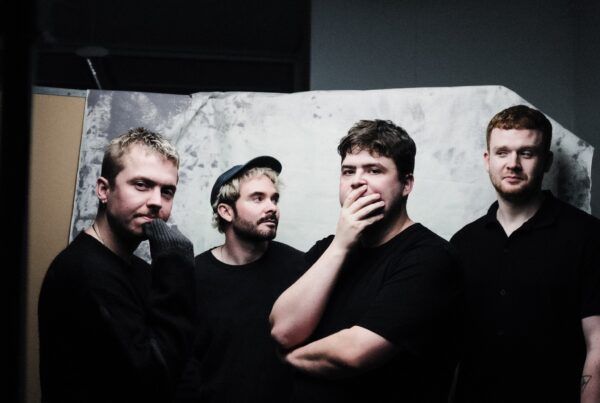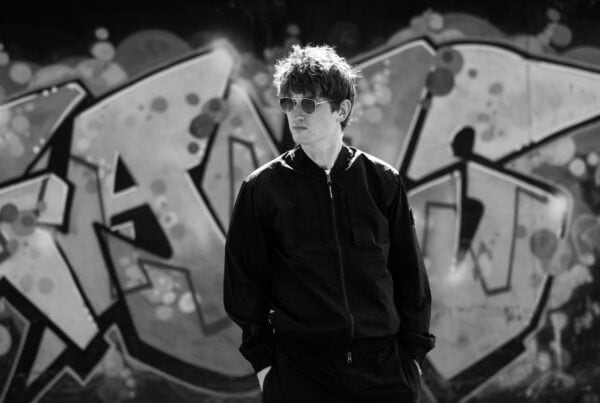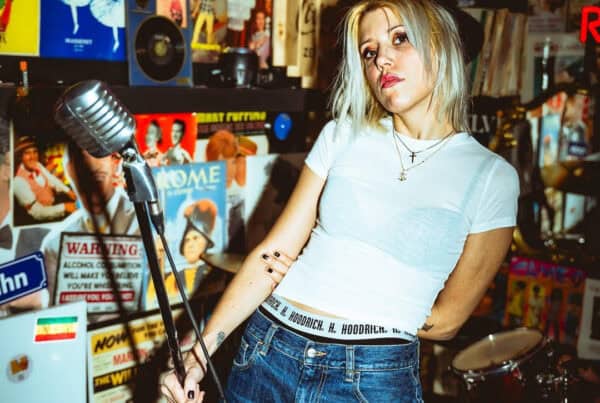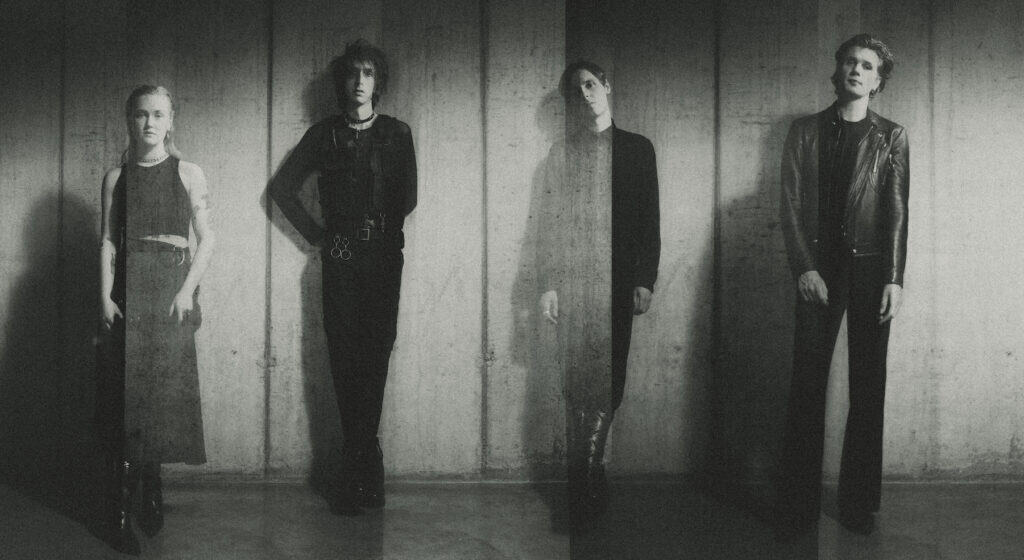Everyone has a creative outlet – be it writing, drawing, fashion or sculpture – that they turn to from time to time. But have you ever thought of pursuing that outlet as a career? Maybe you’re of the impression that you won’t be taken seriously when asked your occupation or that it simply isn’t feasible to maintain on a monetary level as a full-time job. After recently completing a degree in graphic design at the University of Cardiff, Hull-born artist Jessica Zschorn, also known as Jessy Zee, seems set to reach the financially viable part of her career that most artists dream of. Along with her graphic design focus, she also has a passion for photography and filmmaking, and has left education with six jobs. If you run in creative circles, you’re sure to be hearing a lot more about her.
So what are the inspirations behind what Jessy does? When it comes to influence from other creative media, Wes Anderson, Yaoi comics and erotica are all on her list. But her work is also a product of her surroundings, namely people and her own views on society. “I like to express how I feel on certain topics – usually those topics are social, and they usually involve sex.” With her zine ‘Exposing Deviance’, she explored lots of sexual taboos and negatively represented sexual lifestyles. Because of her interest in this area, she’s put herself into plenty of eyebrow-raising situations – living with strippers, for example. Experiences like this have taught her the importance of being empathetic and open-minded. “I try to treat everyone the same, and I don’t like people with strong, negative opinions or people who judge without any preconception of who a person is. I like to shock people and sex has always been something to push people’s buttons. Obviously it’s really important to be respectful and consensual, but aside from that, what does it matter? If I can wind someone up and get them to think my way, that’s amazing. And I think the best way to do that is through humour and pretty things.”
She began to do this when she was a teenager through the medium of comics, a passion she has carried through to adult life. “I wasn’t socially awkward, but aspects where I thought I was lacking socially, I’d explore through characters in comic books. So I was always really interested in the tension between people and society. I was interested in relationships between people and I explored that in my own comics.” As a wide-eyed budding creative, Jessy spent a lot of time trying to get her head around the subject matters portrayed in Yaoi, which she developed quite the obsession with, as well as eventually making her own and partaking in wholesome competition with her friends, who were doing the same thing. “I got older, I’d do more comics, and then I got to uni and wasn’t really working because I’d had it so good previously. And then finally this year I worked out I can make that kind of imagery faster by using photography.”

Channelling her thoughts and feelings into her work is something that has helped Jessy massively on a mental level too, as she admits that she is prone to negative feelings. “If you’re creative, you probably do struggle a bit [with mental health issues]. If you’re able to put your ideas and your feelings into something that means you’re probably very able to feel deeply.” Along with expressing her feelings through her own creations, she recommends meditation for anyone struggling. “It’s completely changed my head. All I can say is meditate if you’re feeling too deep, and that goes for any illness or disorder you might have. I can’t even express how good it’s has been for me personally, and even if it only helps a little bit, it will help.”
Something Jessy deems absolutely essential to an artistic career is a support network; having a good group of similarly minded friends around you. “If you’re in a friend group like I was that was very heavy with drinking and other bad things, find friends that are making stuff. Because people think collectively, and you are inspired by the energy around you”. Online friends, one of the earliest group of supporters of her work, are something she talks about fondly. “It was the best part of my life because you’re there roleplaying online, and as nerdy as that sounds, you’re literally sending sentences to friends and you’re building stories. That sense of community has really never left me”. This sense of community is clearly integral to the way Jessy thinks about both her own creativity and the creative industry in general – whether it’s championing her friend’s band Nuclear Lullaby (who she enthusiastically advises everyone to check out) or building the support system she deems so vital. “It sucks being on your own. Pay attention to other people’s work, or why would people pay attention to yours? You have to nurture. You have to have a community vibe, and you have to get excited about the work of others.”
Moving away for university, growing pains arose in her personal life in terms of this desire for community and companionship. “I had a really big community in Hull before uni – I was making some of the best work of my life and sharing that with people who really cared about what I was doing, and vice versa. I came to uni and had nobody, really, and I lost my way a bit. I didn’t really enjoy the course I was on, I wasn’t surrounded by very motivated people. Eventually I went to South Korea and met some graphic designers and I joined their course. I only had a year on it but it was so rewarding.” As a result, she came back to the UK and changed her degree subject from illustration to graphic design. “The difference is in illustration they’re like ‘you’ve got to draw our way’, but in graphic design it’s ‘oh you draw this way? You do photography? As long as you stick with the rules of design, go for it!’ It’s so, so broad and they were so encouraging.”
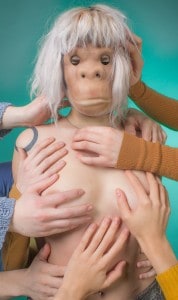
What advice does she have for any fledgling creatives hoping to get to where she is in the future? “Don’t waste your time pissing about doing things that aren’t meaningful – drinking or whatever. It’s all well and good but you know if you want to do something because you naturally want to do it. Just make sure you’re not put off by what other people are doing – you can only be better than yourself at the end of the day.” Paying creatives for their work has been a prominent discourse of late, especially with the rise of social media-like ‘challenges’ as a form of payment for products or services. Perhaps you’re reading this and wondering “how do I start getting paid for my art and making a financially viable career?”. “Don’t worry so much”, says Jessy. “Don’t work for free, but it takes 1000 hours to be good at something and 10,000 hours to be considered really good at something. So if you keep that in the back of your mind, keep making, having fun, don’t have money be the centre of your life. Think about things that make you angry, have that extra incentive and then push that through whatever medium you want. Don’t limit yourself to anything, just get excited about the fact that you care enough about something to make work about it.”
If it’s not been made totally clear thus far, it’s an unfiltered passion for creativity Jessy stresses is the most important quality for anyone wanting to head down this career path. If you want to make it in this industry “just keep making”. Any doubts you have about whatever you create, just get it into the world somehow. “You can always go back and redo it”, she says. “I look back at something and go ‘that was really good’ but at the time I was like ‘that’s fucking shit’”. If you keep your passion for your craft, and carry on getting better at what you’re doing, surely making money from it (if that’s what you want to do) will come up sooner or later.
So what’s next for Jessy? “I’m confident in my ability, so I’m just going to keep making and not really care about money. I think as long as you’re good to people, generally they’re good to you? Make friends and share your thoughts and get other people involved and make stuff with them and travel. You don’t need a lot of stuff really, to live, you just need a floor to sleep on, some good friends along the way and a willingness to help other people.” Now she’s finished uni, her future seems extremely bright. “Finally, I’ve managed to graduate and I’ve been able to look at my exhibition and think ‘I’ve made something that resonates with me that I’m proud of and I want to share’. And now I’ve done it independently. I’m still looking for that community but I have it in myself.”

